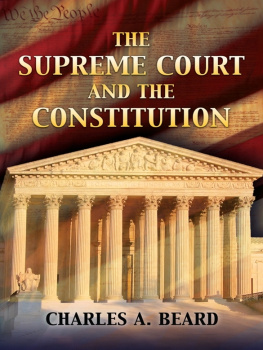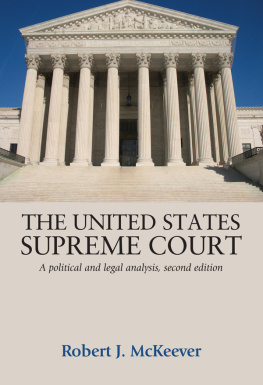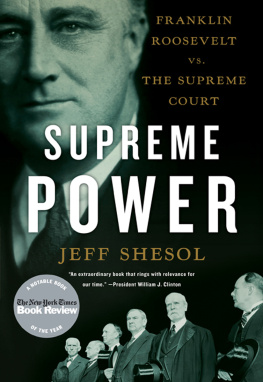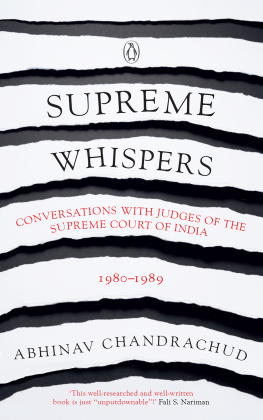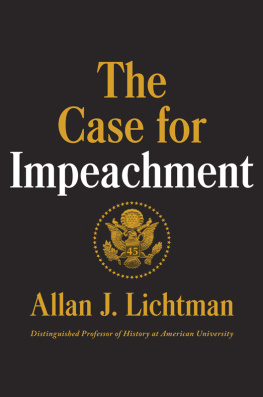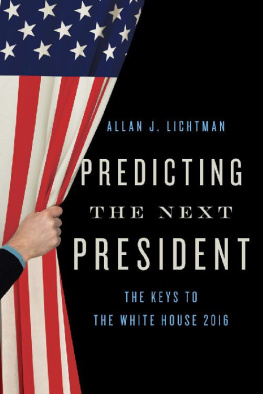Robert M. Lichtman - The Supreme Court and McCarthy-Era Repression
Here you can read online Robert M. Lichtman - The Supreme Court and McCarthy-Era Repression full text of the book (entire story) in english for free. Download pdf and epub, get meaning, cover and reviews about this ebook. year: 2012, publisher: University of Illinois Press, genre: Politics. Description of the work, (preface) as well as reviews are available. Best literature library LitArk.com created for fans of good reading and offers a wide selection of genres:
Romance novel
Science fiction
Adventure
Detective
Science
History
Home and family
Prose
Art
Politics
Computer
Non-fiction
Religion
Business
Children
Humor
Choose a favorite category and find really read worthwhile books. Enjoy immersion in the world of imagination, feel the emotions of the characters or learn something new for yourself, make an fascinating discovery.

- Book:The Supreme Court and McCarthy-Era Repression
- Author:
- Publisher:University of Illinois Press
- Genre:
- Year:2012
- Rating:4 / 5
- Favourites:Add to favourites
- Your mark:
- 80
- 1
- 2
- 3
- 4
- 5
The Supreme Court and McCarthy-Era Repression: summary, description and annotation
We offer to read an annotation, description, summary or preface (depends on what the author of the book "The Supreme Court and McCarthy-Era Repression" wrote himself). If you haven't found the necessary information about the book — write in the comments, we will try to find it.
Robert M. Lichtman: author's other books
Who wrote The Supreme Court and McCarthy-Era Repression? Find out the surname, the name of the author of the book and a list of all author's works by series.
The Supreme Court and McCarthy-Era Repression — read online for free the complete book (whole text) full work
Below is the text of the book, divided by pages. System saving the place of the last page read, allows you to conveniently read the book "The Supreme Court and McCarthy-Era Repression" online for free, without having to search again every time where you left off. Put a bookmark, and you can go to the page where you finished reading at any time.
Font size:
Interval:
Bookmark:

Urbana, Chicago, and Springfield
 This book is printed on acid-free paper.
This book is printed on acid-free paper.my grandchildren, Michael and Lilah,
and of course to Susan.
- the period of the half war with France that produced the 1798 Alien and Sedition Acts, authorizing the executive branch to deport aliens deemed dangerous and to prosecute and imprison critics of the government;
- the Civil War period, during which the government suspended the writ of habeas corpus and authorized trial by court-martial for persons deemed disloyal;
- World War I and the Red Scare of 191920, when hundreds were prosecuted under sedition statutes for speaking in opposition to the war, and aliens associated with socialist and anarchist groups were deported;
- World War II, when the government interned the ethnic Japanese population on the West Coast without charges or hearing and prosecuted for sedition pro-Nazi Americans who spoke in opposition to the war;
- the McCarthy era, when an array of repressive measures, including sedition prosecutions, deportations, and contempt prosecutions for refusal to disclose political associations, was directed at Communists and subversives;
- the Vietnam War, when the government brought conspiracy prosecutions against antiwar activists and prosecuted antiwar speech under a variety of state and federal statutes.
Font size:
Interval:
Bookmark:
Similar books «The Supreme Court and McCarthy-Era Repression»
Look at similar books to The Supreme Court and McCarthy-Era Repression. We have selected literature similar in name and meaning in the hope of providing readers with more options to find new, interesting, not yet read works.
Discussion, reviews of the book The Supreme Court and McCarthy-Era Repression and just readers' own opinions. Leave your comments, write what you think about the work, its meaning or the main characters. Specify what exactly you liked and what you didn't like, and why you think so.

